The RV Cooking Bible
Everything you need to use, make, and try in the galley to create some truly righteous meals.
Buckle up for a righteous romp through our top culinary commandments. Read and commit to each of these, and thou shalt not settle for bad food. And don’t worry—this list is all dos and no don’ts. It’s a combination of our best tips, tricks, techniques, and tantalizing taste bud tempters. Because your mouth deserves a little flavor on the road too.
Use These Tips
Make Your Own Signature Seasoning Blend. Save space and time, and be king of your own mobile castle by consolidating your spice jars into premixed Signature Blends. Make your own with basics like salt and pepper, garlic salt, and onion powder. And toss in some interest with unexpected spices like smoked paprika or chipotle chili powder. Or, in a pinch, leave it to the pros and try a blend like Emeril’s Original Essence.
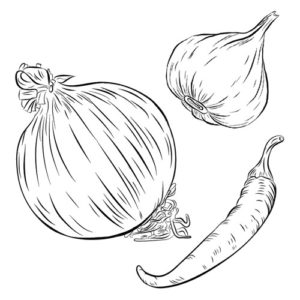
Mise en Place, the Commercial Kitchen’s Secret. Unless you’re an RV full-timer, don’t waste precious time at the campground chopping and slicing. Nearly everything you cook with can be peeled, pruned, sliced, and diced ahead of time. Commercial kitchens call it mise en place, but we call it more campfire time. Bonus: This typically saves tons of trash too, because you can leave all the peels, seeds, cores, and more at home.
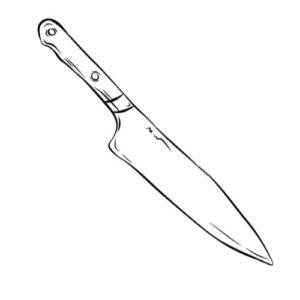
Perk Up Your Pre-mades. There’s no shame in opening a can of something. But thou shalt not stop there! Most pre-made food is made to be pretty mediocre. Try adding a pinch of hot sauce or even your Signature Blend to canned goods. Pre-made soups almost always need a little more tang, which can come from a dash of vinegar or lemon juice. And in our rig, we never put a cooked veggie on the table without butter, lemon juice, and salt.
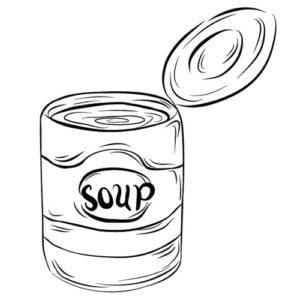
Fat and Acid. Salt Everything. Every great dish has a balanced mix of these three primary tastes, with sweet and spicy often mixed in. The mysterious taste of umami is also important, found in tomato products (even ketchup!), aged cheeses like parmesan, or products like ranch dressing or soy sauce. For fats, you want butter or any kind of oil. And acids are vinegars, lemon juice, or anything pickled. As you’re cooking, be sure that all three of the majors are represented.
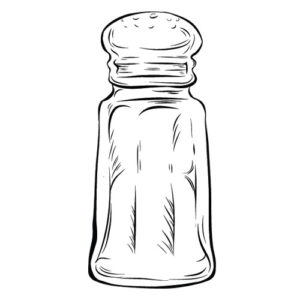
Go Ziplock or Go Home. Plastic bags are versatile, lightweight, and easy to store. A box of sandwich-sized and gallon-sized freezer bags can easily fit even in the most compact kitchens. Don’t skimp on the quality. The difference between low- and high-quality bags is noticeable; but the price usually isn’t. (And a bag tear can lead to absolute RV kitchen disaster.) Use Ziplocks to replace Tupperware when holding leftovers, your custom seasoning mix, and more.
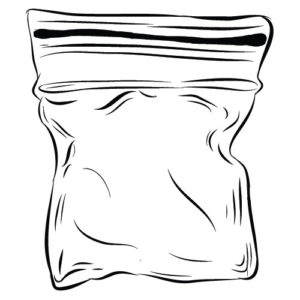
Use Two Skewers Instead of One. This sneaky tip for campfire cooking makes everything from sausages to smores just a little easier to handle. It has also saved many a toasty dog from falling onto my foot, into the campfire, or somewhere other than where it belongs: my mouth.
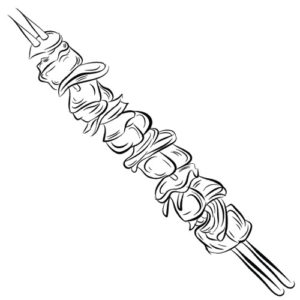
Take Paper Copies of Recipes. You never know when you’ll be out of reach of the internet. Print out any necessary recipes (or directions!) ahead of time to make sure you don’t get stuck without sweet, delicious data when you need it.
Make It Once. Eat It Twice. Soups, stews, chili, casseroles, pasta, rice—these dishes all hold up as leftovers extremely well. Consider doubling recipes so you can count on leftovers the day after. And, typically, the day after that too.
Recipes Are Just a Starting Point. Thou shalt not let anyone tell you how to eat. Recipes are made to be broken. Use a little extra of this, a little less of that, and grab your culinary life by the horns. You’ve earned it. Eat your way to your best life.





